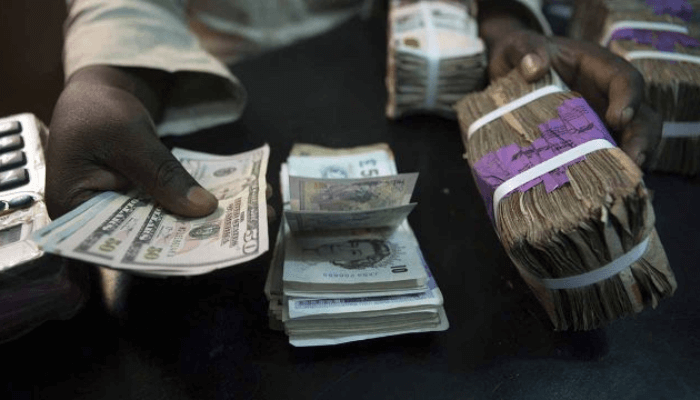The naira weakened further on Friday, trading at an average of N1,665 per dollar in the parallel market, commonly known as the black market. This marks a N5 depreciation compared to the N1,660 rate seen earlier in the week. In Abuja and Onitsha, the dollar reached as high as N1,670.
The fall in value is largely attributed to strong demand from end-users seeking Basic Travel Allowances (BTA), Personal Travel Allowances (PTA), and funds for school fees and medical expenses.
“We are buying dollars at N1,650 and selling at N1,670,” a trader in the black market revealed on Friday.
On the official FX market, the naira also took a hit, losing 5.5% in value. The dollar was quoted at N1,649.76 on Thursday, compared to N1,558.75 on Wednesday, according to data from the Nigerian Autonomous Foreign Exchange Market (NAFEM).
Interestingly, the naira gained 5.06% on Wednesday after a surge in dollar supply, with $221.24 million traded in a single day.
Meanwhile, Nigeria’s external reserves increased by $490 million within a week, bolstered by the government’s successful issuance of domestic dollar bonds. The Central Bank of Nigeria (CBN) reported that reserves climbed to $36.73 billion by September 10, 2024, from $36.24 billion recorded on September 2.
In August, the Nigerian government issued $500 million, the first tranche of a $2 billion domestic US dollar bond aimed at stabilizing the nation’s economy.



![Man is not built to sexually be with one woman’ – 2Face Idibia [VIDEO]](https://kwaraexpress.com/wp-content/uploads/2025/07/IMG_2094-259x300.jpeg)









